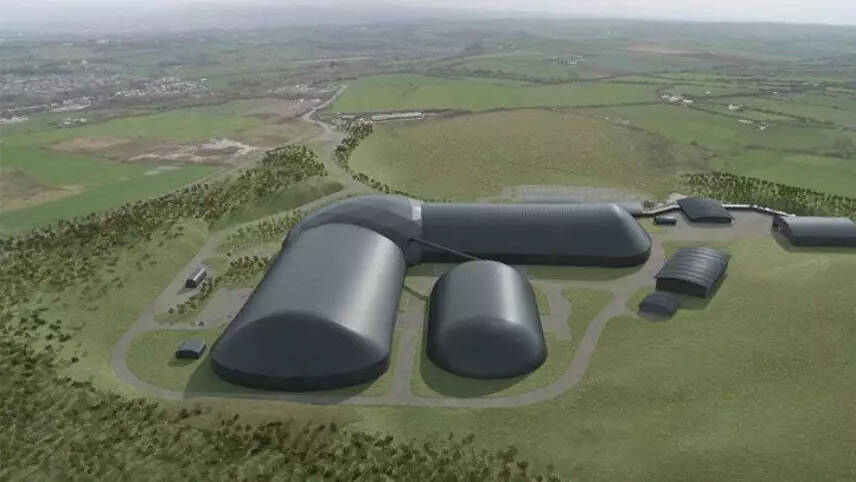Register for free and continue reading
Join our growing army of changemakers and get unlimited access to our premium content

Pictured: An artist's impression of the completed mine. Image: West Cumbria Mining Company
A judge has today (19 May) granted Friends of the Earth and South Lakes Action on Climate Change (SLACC) a hearing to challenge the UK Government’s decision to approve West Cumbria Mining’s plans for a new deep coal mine for producing metallurgical coal.
The hearing will take place in either summer or autumn and should last for three days.
During the hearing, Friends of the Earth and SLACC will contend that the Government has failed to account for the full climate impacts of the mine and, in doing so, has breached its international commitment to the Paris Agreement. It may also, they will argue, undermine the delivery of the UK’s 2050 net-zero target and interim carbon budgets.
Friends of the Earth campaigner Tony Bosworth said he is “delighted” with the High Court’s decision.
He said: “We believe the Secretary of State made significant climate-related errors when he granted planning permission for this development, and that his decision was unlawful.
“With climate breakdown accelerating even faster than scientists predicted, it’s more important than ever that ministers’ decisions reflect the long-term interests of people and the planet, and not misguided short-term political considerations.”
Cumbria County Council initially approved West Cumbria Mining’s proposals for the project in October 2020.
However, the decision was called in by the UK Government in early 2021 on the grounds of the potential climate impact of the use of the extracted coal. Ministers asked for a full assessment of the mine’s compatibility with national and international climate targets.
Levelling Up Secretary Michael Gove had the final say once updated assessments had been provided, and gave the project the go-ahead in December 2022.
Very quickly, environmental groups began to question Gove’s conclusions. For example, Gove stated that the mine could be net-zero in operation if its operators procured carbon credits, but offset certification provider Gold Standard has stated that it will not provide credits for coal mining.
There is also fierce debate about whether the mine will lock in coal in the steelmaking sector, just as the sector needs to accelerate the adoption of lower-carbon alternatives. Coal extracted from the mine will be used in steelmaking in the UK and overseas, with most of its resources exported.
Gove’s decision caused a row in the House of Commons and was strongly criticised by both the Climate Change Committee (CCC) and net-zero review author Chris Skidmore MP.
Shell decision
In other climate litigation news, ClientEarth has been granted an oral appeal to the High Court for its case against Shell. It is aiming to hold the company’s board of directors personally responsible for mismanaging climate risks, in what is regarded as the first case of its kind globally.
The High Court last week refused permission for ClientEarth’s case to proceed. Now, it is giving representatives from the environmental law firm to appeal its initial decision.
ClientEarth is arguing that Shell’s current climate plans would result in an absolute reduction of emissions across all scopes by just 5% this decade. Climate scientists recommend that global emissions will need to be halved by 2030 to give us the best chance of limiting warming to 1.5C.
A statement from ClientEarth reads: “Shell’s shareholders need certainty that the company is using their capital effectively in its navigation of the global energy transition and is genuinely pursuing the climate goals that it says it is.
“It is in the best interests of the company, its employees and its shareholders – as well as the planet – for Shell to reduce its emissions faster than it is currently planning.”
Shell has stated that it does “not accept the allegations” from ClientEarth and has continued to argue that its directors have complied with – and gone beyond – legal duties “in the best interests of the company”.


The whole discussion on energy and climate change devolves upon our choice of sources of energy.
Our demands are for both mobile energy in transport, and static energy in homes and industry.
Nuclear sources can address the static demand, and renewables can play a part, but these latter are unreliable in their variability, with the exception of tidal energy.
The present possible solutions are all highly technical. Emotion drives desire, but not solutions. The involvement of business interests only confuses the picture.
There is no easy answer; if only!!!